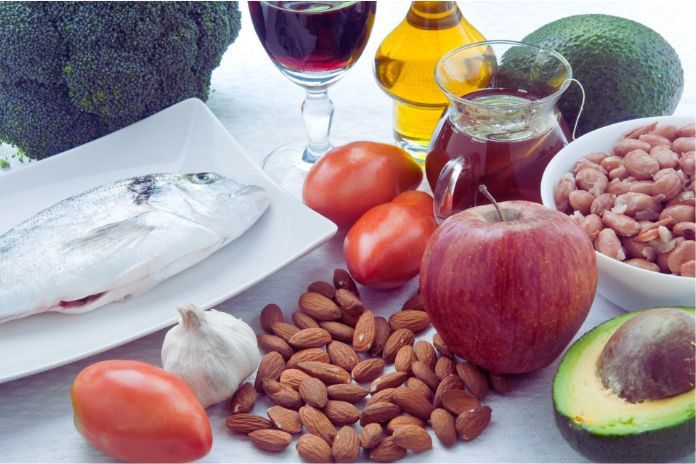How are your cholesterol levels? While this fat is super important for health, keeping LDL and HDL cholesterol levels in check is critical, especially in cardiovascular disease. The secret to this balance is in the diet! In this article, learn more about this lipid and find the ten foods that lower cholesterol.
Learn More About Cholesterol
Naturally produced by the liver, cholesterol is a type of lipid that participates in fundamental functions without which we could not survive, such as:
- cell membrane formation ;
- production of digestive bile acids;
- vitamin D synthesis;
- production of some hormones.
This waxy substance does not mix with the blood, so to help transport cholesterol, the liver produces lipoproteins that carry it through the bloodstream.
What Makes Cholesterol Rise?
High cholesterol can be inherited (familial hypercholesterolemia), but it is usually the result of unhealthy lifestyle choices. This means that high cholesterol is both preventable and treatable.
Second studies doctors, risk factors that contribute to increased cholesterol include:
- a diet high in saturated or trans fats;
- sedentary lifestyle;
- smoking;
- obesity.
Secondary causes of high cholesterol include biliary obstruction, chronic kidney disease, type 2 diabetes mellitus, hypertension, and hypothyroidism. Certain medications such as diuretics, cyclosporine, and glucocorticoids can also contribute to high LDL cholesterol levels in the blood.
Foods That Lower Cholesterol
Fortunately, a proper diet can help lower cholesterol and improve your blood lipid profile. There are a variety of foods that help lower cholesterol in a variety of ways. Here are ten foods that can help with this, based on what science has discovered:
Oatmeal
Oats have a substance called β-glucan, a soluble dietary fiber found in the walls of the endosperm cells of this cereal. Oat β-glucan has generated considerable interest due to its cholesterol-lowering properties. In 1997, the Food and Drug Administration (FDA) even approved a claim on β-glucan soluble fiber about its potential to lower plasma cholesterol levels.
The analysis showed that studies over the past 13 years support that daily oats can reduce total and low-density lipoprotein (LDL) cholesterol levels by 5 to 10%.
Avocado
Avocado is considered one of the most nutritionally rich fruits. This fruit has large amounts of unsaturated and monounsaturated fatty acids and is rich in fibre, protein, vitamins, antioxidants and minerals. No wonder it also seems to help reduce LDL cholesterol levels. A meta-analysis found that replacing other fats with avocado was associated with lower total cholesterol, LDL and triglycerides.
Nuts (Almonds And Walnuts)
Almonds and walnuts are essentially rich in monounsaturated fats. According to studies, nuts are also rich in omega-3 fatty acids, a type of polyunsaturated fat that is associated with heart health. Clinical trials have demonstrated that nut-rich diets have a cholesterol-lowering effect and beneficially impact other cardiovascular risk markers such as visceral adiposity, blood pressure, oxidative stress, and inflammation.
Legumes (Beans, Lentils, Peas)
Legumes such as beans, chickpeas, lentils and peas have received special attention for their ability to reduce the risk of cardiovascular disease. A review of randomized controlled trials showed that eating 1/2 cup (100 grams) of legumes a day effectively lowers LDL cholesterol by 6.6 mg/dl compared to eating no legumes.
Olive Oil
A high content of monounsaturated fatty acids characterizes extra virgin olive oil. The American Heart Association reviewed scientific evidence from observational studies and randomized controlled trials. It concluded that replacing dietary saturated fatty acids with polyunsaturated and monounsaturated fatty acids may decrease the risk of cardiovascular disease. Another study on people at high cardiovascular risk demonstrated that a Mediterranean diet supplemented with extra virgin olive oil or walnuts could reduce the incidence of major cardiovascular events. These findings reveal much about the cholesterol benefits of consuming olive oil.
Soluble Fiber
Recent studies have highlighted the role of dietary fibre, particularly water-soluble varieties, in reducing the risk of cardiovascular disease. Several types of soluble fibre, including psyllium, beta-glucan, pectin and guar gum, have been shown to lower LDL-C in well-controlled intervention studies. At the same time, the soluble fibre content of legumes and vegetables also lowered LDL.
Fruits Rich In Pectin
Fruits can be important allies in controlling cholesterol levels. One study found that pectin in some fruits, such as oranges, can help reduce total cholesterol by 3-7%. The mechanism of pectin lowers cholesterol is similar to other water-soluble fibres. By increasing intestinal viscosity, fibre reduces the reabsorption of bile acids, thereby increasing the synthesis of these acids from cholesterol. This mechanism, in turn, reduces the cholesterol circulating in the blood.
Dark Chocolate/Cocoa
Dark chocolate is a widely consumed food worldwide – and it can contribute to maintaining a good lipid profile. Studies have suggested that eating dark chocolate can reduce LDL cholesterol and triglycerides (TG) serum levels and increase high-density lipoprotein (HDL) cholesterol. Collaborating with these findings, a meta-analysis of eight randomized trials involving 215 subjects reported that a dark chocolate intervention was associated with a significant reduction in serum LDL in subjects with risk factors for cardiovascular disease.
Soy
The proteins and isoflavones in soy seem to benefit the serum lipid profile. A meta-analysis comprehensively examined the effects of soy consumption on the lipid profile and found that soy consumption significantly reduced both LDL cholesterol and total cholesterol. Also, according to this meta-analysis, it was found that the reduction in LDL was more significant when whole soy products such as soy milk, soy and nuts were used as a test, as opposed to processed soy extracts.
Omega-3 Sources (Fatty Fish, Seeds, Shrimp)
The omega-3 fatty acids are long-chain alpha-linolenic acid (ALA), eicosapentaenoic acid (EPA) and docosahexaenoic acid (DHA). Some studies demonstrate that omega-3s have potential mechanisms of cardioprotective effects, including:
- reduction of triglyceride (TG) levels;
- reduction of atherosclerotic plaques;
- reduced blood pressure;
- improvement of endothelial function.
Based on current knowledge, one study concluded that omega-3s could beneficially affect cholesterol, mainly by influencing the restructuring and increase of high-density lipoprotein (HDL).
Also Read: What Are The Causes Of Increased Bad Cholesterol?

